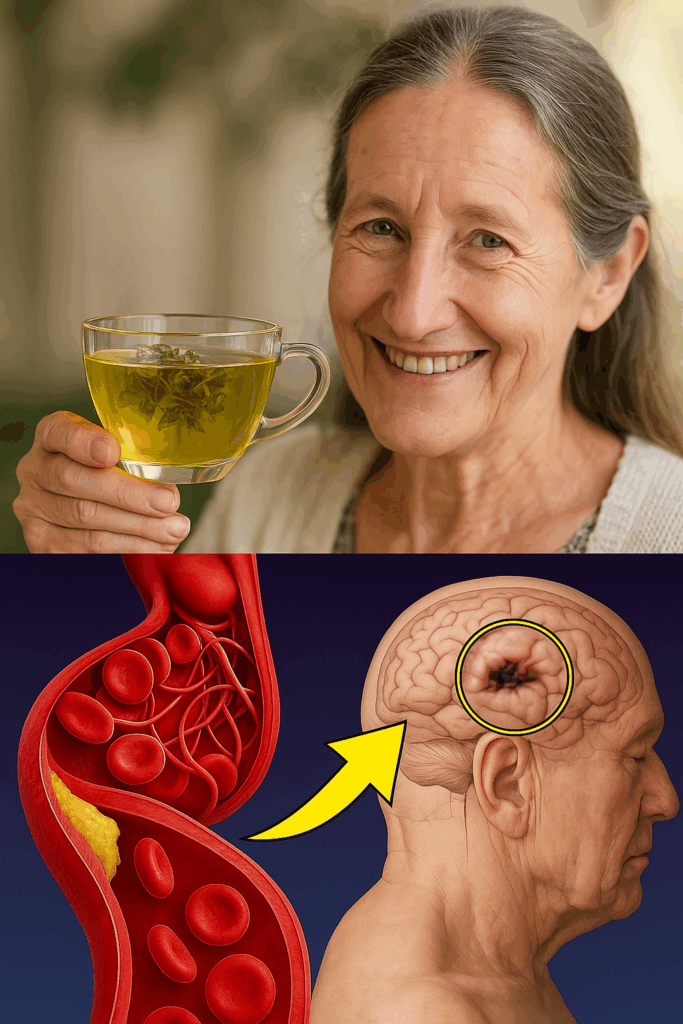Move over aspirin—ginger tea might just be nature’s gentler, tastier alternative for promoting healthy blood flow and reducing clot risks. With its anti-inflammatory, antioxidant, and natural blood-thinning properties, this spicy root delivers more than warmth on a cold day—it supports your heart and circulatory system with every sip.
Let’s explore why a daily cup of ginger tea might be one of the best natural habits you can adopt for cardiovascular wellness.

🌿 Why Ginger Tea Works
✔ Natural Blood Thinner
Ginger contains gingerol, a powerful bioactive compound that helps prevent platelet aggregation—the clumping of blood cells that can lead to clots.
✔ Reduces Inflammation
Chronic inflammation is a known risk factor for heart disease. Ginger’s anti-inflammatory action can help reduce arterial stiffness and ease blood vessel tension.
✔ Heart Protector
Ginger may help lower blood pressure and LDL cholesterol, key factors in maintaining a healthy heart and preventing blockages.
🧪 Ginger vs. Aspirin?
While aspirin is commonly used to prevent clots, it may cause side effects like stomach irritation or internal bleeding. Ginger offers a gentler option—ideal for those looking to maintain healthy circulation without pharmaceutical side effects (but always consult your doctor first).
🍵 How to Make Ginger Tea
Ingredients:
- 1–2 inches fresh ginger root
- 1 liter water
- Optional: honey or lemon to taste
Instructions:
- Peel and slice the ginger into thin pieces.
- Simmer in water for 15–20 minutes to extract its medicinal compounds.
- Strain into a cup and enjoy warm.
- Add lemon or honey if desired for taste and added benefits.
✅ Tip: Drink 1 cup daily, especially in the morning, for sustained cardiovascular support.
💚 Benefits of Ginger Tea at a Glance
- Prevents blood clots naturally
- Improves circulation and supports vascular function
- Lowers blood pressure and bad cholesterol
- Reduces inflammation and joint stiffness
- Relieves nausea, bloating, and digestive discomfort
- Strengthens immunity with antioxidants

⚠️ Safety Tips
- Consult your doctor if you take aspirin or blood thinners (like warfarin)
- Avoid excessive intake (no more than 3–4 cups daily)
- Use with caution during pregnancy or if you have gallbladder issues
- Stick to fresh ginger for best results (powdered forms may be less effective)
🌟 Final Thought
Ginger tea isn’t just a comfort drink—it’s a circulation-boosting, heart-nurturing tonic backed by tradition and science. Whether you’re seeking to support your cardiovascular system, reduce clot risks, or simply feel more energized and clear-headed, this simple beverage delivers powerful benefits in every cup.
💬 Have you tried ginger tea for heart health? Share your favorite recipe or experience in the comments below!


